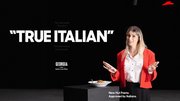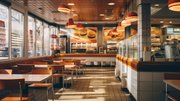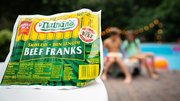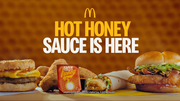Article
Should QSR burger chains rethink the combo meal?
Consumers' desire for more choices and a better value is impacting sales of bundled offerings.
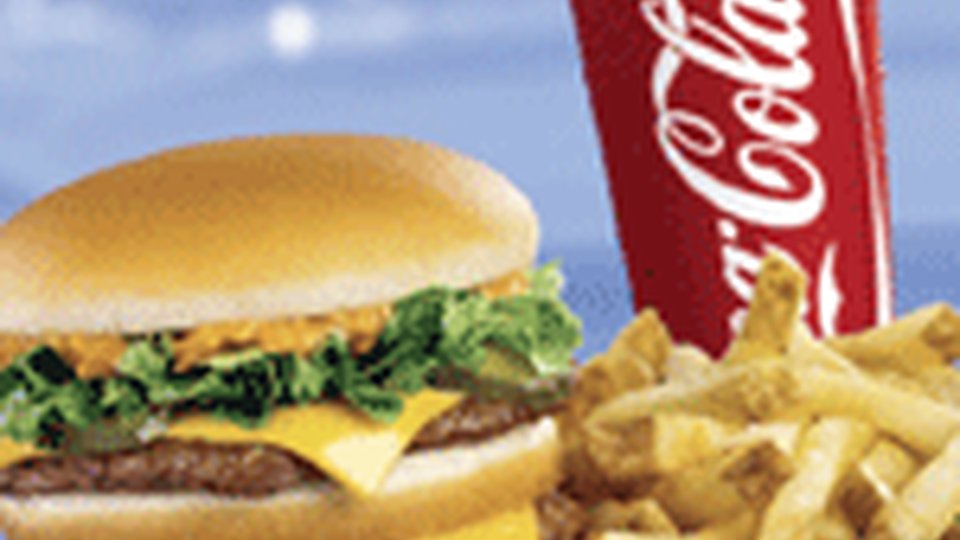
January 24, 2010
Consumers loved the idea of the combo meal when quick-service burger chains introduced it in 1992. Back then, they saw the value in shaving a dime or two off the cost of purchasing a burger, fries and drink. The bundled meal was so popular the strategy helped chains weather the 1990-91 recession.
Fast forward to this recession, and the romance has cooled. According to the NPD Group, combo sales were down 2 percent in 2009 compared to the prior year, as consumers drove off with nothing but a burger. That drop is even more significant when compared to overall traffic for QSR burger chains, which is down 1 percent.
"They're declining more than what overall traffic is, so there's something beyond just traffic loss contributing to that," said Bonnie Riggs, restaurant industry analyst with the market research company.
And it's a trend that started well before the recession, with combo sales slowing 1 – 2 percent most years since 2005. Add in consumers' fixation on the lowest price , and the value of combo meals is no longer so clear.
So what's wrong with the combo meal? Is the special price too high for today's consumers? Is it a victim of the ever-expanding menu? Or is the traditional 'burger-fry-carbonated beverage' offering is so 20th century?
Industry research suggests a mix of all of the above.
Price point certainly is a factor at burger chains. Riggs said combo prices have been going up even as combo sales have declined.
But at chains in the "other sandwich" category, consumers are willing to pay almost $1 more for a combo meal. The average combo price in the burger category is $5.68, and $6.48 at sandwich chains.
"So what is it about the burger category that they're not willing to pay that higher price point for that combo meal?" Riggs asked. "There's something lacking there in terms of the value equation in consumers' minds."
More than just fries
Consumers apparently see a greater value in combo meals at sandwich shops, and it likely is because they offer more choices, Riggs said. For example, Subway offers a choice of chips, including baked options or a cookie. Or guests can opt for a cup of soup for about $1.50.
Consumers want more choices, particularly in the combos, according to a recent NPD survey of consumers 18 – 34, the core demographic for the burger category, Riggs said.
"They want to get a bottled water, maybe, or something other than fries," she said.
Part of the combo meal's problem may very well lie with its most common side orders. Consumers seem to have less interest in fries and drinks. Purchases of those items were down in 2009, even from the value menu. Dollar menu purchases were up in 2009, primarily for the entrée, but not for the small fries or soft drink, according to NPD/CREST.
"So if they don't even see the value of it from the dollar menu, how are they going to see value in it from a combo meal that's higher priced?" Riggs said.
With health and nutrition a growing consumer interest, QSR burger chains might consider adding a non-fried side item. McDonald's and Burger King have already seen how adults order their sliced apples off the kids meals. Offering something like prepackaged baby carrots and dip might appeal even more to adult tastes.
Some chains, like Wendy's, do offer a pick-and-choose combo menu, featuring a handful of side items such as a small chili, regular baked potato or side salad.
Riggs suggests Wendy's would be better off promoting that feature rather than its current $2.99 Deluxe Value Meal. With that special, they are undercutting the built in profit of the drink and fries. Such undercutting will only squeeze margins and can only be temporary.
Some brands, like Checkers/Rally's, are marketing mix-and-match combo specials. The drive-in brands are known for their 2-for-1 burger specials, but the "More for Less" promo lets customers choose two items from 11 offerings for "one low price." Most stores are selling the two items for $3, while some franchisees are using the $4 price point. The choices include eight entrees, medium fries and even a shake.
Menu cannibalization
Tim Powell, senior manager for restaurant industry consultant Technomic Inc., said that combo sales may also be on the decline because brands have expanded their menus. For example, Coffee is no longer the realm of just coffeehouses and donut shops. McDonald's made that clear with its successful McCafé espresso-based beverages. And frappes and smoothies will be on the chain's menu by summer.
"This is going to cannibalize some of the combo meals that have been popular," he said.
His research of top QSR burger chains' research and development indicates that they seem to be moving away from an emphasis on combo meals. Instead, they're working on more sides and snacks, likely to shift to meet consumers interest in portability, customization, and health and nutrition.
| ||||||||||||||||||||||
McDonald's newest menu item is a good example. Instead of a new sandwich, the chain released a snack wrap that leverages its iconic Big Mac. The Mac Snack Wrap allows the chain to use existing ingredients — and a well-loved flavor profile to extend its line of more portable offerings.
In deemphasizing the combo meal, chains are offering choices that play into those trends and the focus on value.
"They're giving them choices, and combo meals don't offer that," Powell said. "You're kind of locked into things. This way you can separate things out a lower price point."
Still, the combo meal is far from a relic. The offering is too important, with the category selling 55 percent of all QSR combo meals, Riggs said.
"I'm not saying not saying they're not going to get some of (the loss in combo sales) back," she said "But there is some shift occurring. And there is opportunity out there to drive combo meal sales. They just have to find it."
 ChatGPT
ChatGPT Grok
Grok Perplexity
Perplexity Claude
Claude
